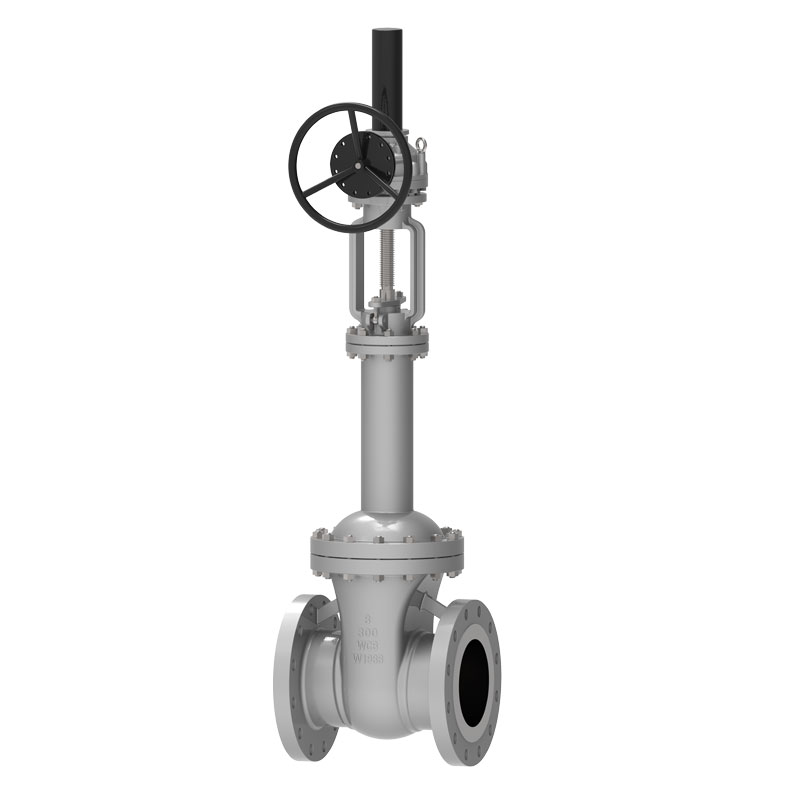- English
- Esperanto
- беларускі
- Hrvatski
- ქართული
- Монгол хэл
- O'zbek
- Հայերեն
- Sundanese
- Español
- Português
- русский
- Français
- 日本語
- Deutsch
- tiếng Việt
- Italiano
- Nederlands
- ภาษาไทย
- Polski
- 한국어
- Svenska
- magyar
- Malay
- বাংলা ভাষার
- Dansk
- Suomi
- हिन्दी
- Pilipino
- Türkçe
- Gaeilge
- العربية
- Indonesia
- Norsk
- تمل
- český
- ελληνικά
- український
- Javanese
- فارسی
- தமிழ்
- తెలుగు
- नेपाली
- Burmese
- български
- ລາວ
- Latine
- Қазақша
- Română
- Srpski језик
What is the Primary Function of a Gate Valve in a Fluid Control System?
2025-01-21
Gate valves are one of the most widely used types of valves in fluid control systems, renowned for their simplicity, durability, and efficiency. Their primary function is to control the flow of liquids, gases, or steam by providing an unobstructed path when fully open and a secure seal when fully closed. This blog explores the purpose, operation, and key advantages of gate valves in various industrial applications.

Understanding the Gate Valve Design
Gate valves operate using a sliding gate or wedge that moves perpendicular to the flow of fluid. The mechanism is straightforward yet highly effective:
1. Fully Open Position: When the gate is raised, it aligns with the valve body, allowing fluid to flow freely with minimal resistance.
2. Fully Closed Position: When the gate is lowered, it fits tightly against the valve seat, creating a complete seal to stop the flow.
This binary operation makes gate valves ideal for applications where precise flow regulation is not required but reliable on/off control is crucial.
The Primary Function: On/Off Flow Control
The main purpose of a gate valve is to enable or disable fluid flow in a system. Unlike throttling valves, gate valves are not designed for partial operation because this can cause vibrations, turbulence, and wear on the valve components. Instead, their strengths lie in:
- Unrestricted Flow: When fully open, gate valves minimize pressure loss and allow for a smooth, unobstructed flow of fluid.
- Effective Isolation: The ability to completely shut off flow makes gate valves essential for isolating sections of a pipeline during maintenance or emergencies.
- Versatile Applications: Gate valves are suitable for a wide range of fluids, including water, oil, steam, and corrosive chemicals, making them indispensable in industries like oil and gas, water treatment, and power generation.
Key Advantages of Gate Valves
Gate valves offer several benefits that contribute to their widespread use:
1. Minimal Pressure Drop: The straight-through design ensures that pressure loss is minimal, which is critical in systems requiring efficient flow.
2. Durability: Constructed from robust materials like stainless steel, cast iron, or brass, gate valves can withstand high pressures and temperatures.
3. Wide Size Range: Available in a variety of sizes, gate valves are suitable for small residential pipelines and large industrial systems alike.
4. Bidirectional Flow: Gate valves can handle fluid flow in either direction, enhancing their versatility.
Common Applications of Gate Valves
Gate valves are utilized across numerous industries, including:
- Oil and Gas: For pipeline isolation and crude oil transport.
- Water Supply Systems: To control the flow of water in municipal and industrial settings.
- Power Plants: For steam and coolant management.
- Chemical Processing: To handle corrosive or high-pressure fluids.
When it comes to valves, WAITS VALVE is a name you can trust. We are a well-known manufacturer with many years of industry experience, and our valves are made with high-quality materials and advanced manufacturing technology. Whether you are looking for wholesale valves, or need a specific valve customized for your project, we are here to provide you with high quality and excellent service.Visit our website at www.waitsvalve.com to learn more about our products. For inquiries, you can reach us at waits@waitsvalve.com.




